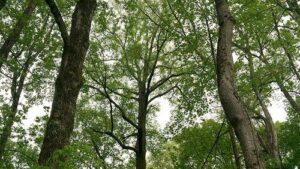In the bustling metropolis of Atlanta, where the urban landscape meets the serenity of nature, a delicate balance exists between development and preservation. As car dealerships thrive amidst the city’s vibrant economy, it’s crucial for them to understand the intricate relationship between their business operations and the local tree laws. In this article, we delve into why Atlanta car dealerships should pay close attention to tree law and the benefits of doing so.
Environmental Responsibility
Atlanta car dealerships, like any other business, have a responsibility towards environmental conservation. Trees play a vital role in maintaining ecological balance by purifying the air, mitigating pollution, and providing habitat for wildlife. By adhering to tree laws, dealerships contribute to the preservation of Atlanta’s green spaces, thereby fulfilling their environmental obligations.
Community Relations
Atlanta residents value their city’s lush greenery and are passionate about preserving its natural beauty. Non-compliance with tree laws can lead to public outcry and damage the reputation of car dealerships within the community. By demonstrating respect for local tree ordinances, dealerships can strengthen their relationship with residents and foster goodwill.
Legal Compliance
Ignoring tree laws can have serious legal repercussions for car dealerships. Atlanta has stringent regulations governing tree removal and preservation, and failure to comply with these laws can result in hefty fines, lawsuits, or even the suspension of business operations. By familiarizing themselves with and adhering to tree ordinances, dealerships avoid legal entanglements and ensure smooth business operations.
Property Value Enhancement
Trees enhance the aesthetic appeal of commercial properties and contribute to higher real estate values. Car dealerships that maintain green spaces on their premises not only attract more customers but also command premium prices for their offerings. By investing in tree preservation, dealerships can increase the overall value of their properties and enjoy long-term financial benefits.
Urban Heat Island Mitigation
Atlanta faces the challenge of urban heat islands, where built-up areas experience higher temperatures than surrounding rural areas due to heat absorption and reduced green cover. Trees help mitigate this effect by providing shade and cooling the environment through evapotranspiration. Car dealerships that prioritize tree preservation contribute to combating urban heat islands, making the city more livable for its residents.
Marketing Advantage
Environmental consciousness is increasingly becoming a deciding factor for consumers when choosing businesses to patronize. Car dealerships that demonstrate a commitment to tree preservation can leverage this as a marketing advantage. By highlighting their eco-friendly practices, dealerships can attract environmentally-conscious customers and differentiate themselves from competitors.
Long-Term Sustainability
Sustainable business practices are essential for the long-term viability of car dealerships. Trees are a finite resource, and their preservation is crucial for ensuring a sustainable future for Atlanta’s urban landscape. By integrating tree preservation into their business strategies, dealerships contribute to the city’s long-term sustainability goals and secure their place in a rapidly evolving market.
Conclusion
In conclusion, Atlanta car dealerships have a vested interest in caring about tree law Atlanta for a multitude of reasons. From environmental responsibility to legal compliance, community relations to long-term sustainability, prioritizing tree preservation offers numerous benefits for dealerships and the city as a whole. By recognizing the importance of trees and adhering to local tree ordinances, car dealerships can not only enhance their reputation and profitability but also contribute to the well-being of Atlanta’s urban ecosystem. In an era where environmental consciousness is paramount, embracing tree law isn’t just a legal requirement—it’s a strategic imperative for thriving in the modern business landscape.


